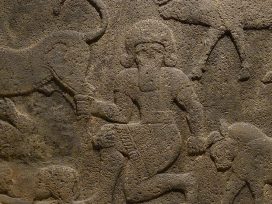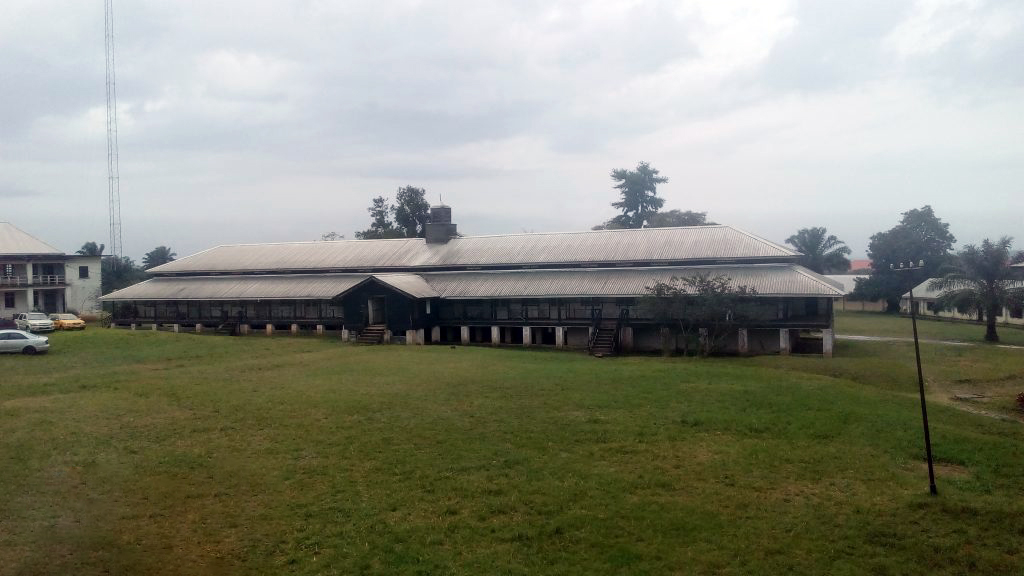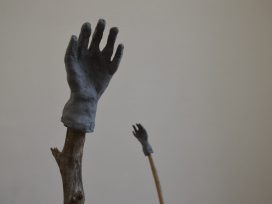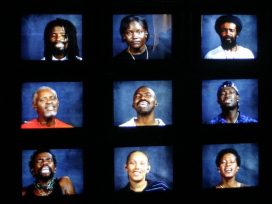‘Colonial mimicry’ describes a colonized person’s ambivalent relationship to their colonizer, whereby parts of a colonial project and its vocabulary are adopted to challenge its discursive discrimination. The process, as set out by the post-colonial theoretician Homi Bhabha, can create a ‘third space’ for the development of new hybrid and potentially liberating forms of subjectivity that are neither ‘traditional’ nor ‘colonial’. Chinua Achebe (1930–2013) and Ngũgĩ wa Thiong’o (1938–), two African writers who were both students at colonial public schools – the former in 1940s Nigeria and the latter in 1950s Kenya – epitomize this dynamic. In their autobiographical writing, they describe public school as a place where they inherited the identities of the colonial project and, at the same time, gained experiences that allowed them to transcend the roles normally assigned to young Africans who received an elite eduction during the late colonial period.
Claiming that Chinua Achebe’s and Ngũgĩ wa Thiong’o’s experiences are part of a global intellectual history entails more than the fact that they are African writers who went to school five thousand kilometers apart: Achebe studied at Government College, Umuahia, East Nigeria, and Ngũgĩ at Alliance, just outside Nairobi. Rather their intellectual development was shaped by a colonial dynamic which was influential over large parts of the globe.
In European colonies, ruling powers imposed an educational system and a curriculum that often informed the intellectual classes. The system obliged intellectuals to assimilate a foreign culture either through its adoption or partial adaptation, or to confront the imposed structure, which often manifested itself as internal conflict. Many geographical contexts have displayed this tendency over the past 200 years. As such the story of Ngúgí and Achebe is part of a global historical dynamic which always finds a local expression.
Researchers of intellectual history have long been interested in this dynamic but have often focused on the importance of higher education: Mahatma Ghandi’s law studies in London and Leopold Senghors’ studies in Paris are among the most renowned examples. It is only recently that academics have begun to study the lower echelons of the education system in more detail.
British Public Schools in Africa
Colonial education in British-ruled African colonies was generally very sporadic. Therefore, public schools such as Alliance and Umuahia regarded themselves as beacons of learning to which only the most gifted could gain access. These two schools had their roots partly in missionary activity and partly in the paternalistic colonial administration from the 1920s that felt the need to promote educational activity in the colonies. There was a difference between the schools, but, in general, the aim was to educate independent-thinking young Africans who were at the same time aware of their inferior place in the existing racial hierarchy. It was, to say the least, a rather contradictory idea that lay behind the educational ideal neatly summed up by the Alliance school’s motto, ‘strong to serve’.
The schools were designed to foster the intellectual and moral capabilities of a modern African elite who would understand the importance of cooperating with their white colonial masters. However, the head teachers and schoolmasters – of whom some were black Africans – had a high degree of autonomy when deciding the schools’ teaching styles and curriculums. Many of them had been educated in British public schools and the African versions were modelled on this tradition, with cricket, prefects, morning assembly and a curriculum consisting of English literature, geography and history. Umuahia was known as ‘The Eton of the East’, with a curriculum, examinations and educational levels that corresponded to those in England.
Achebe in Umuahia
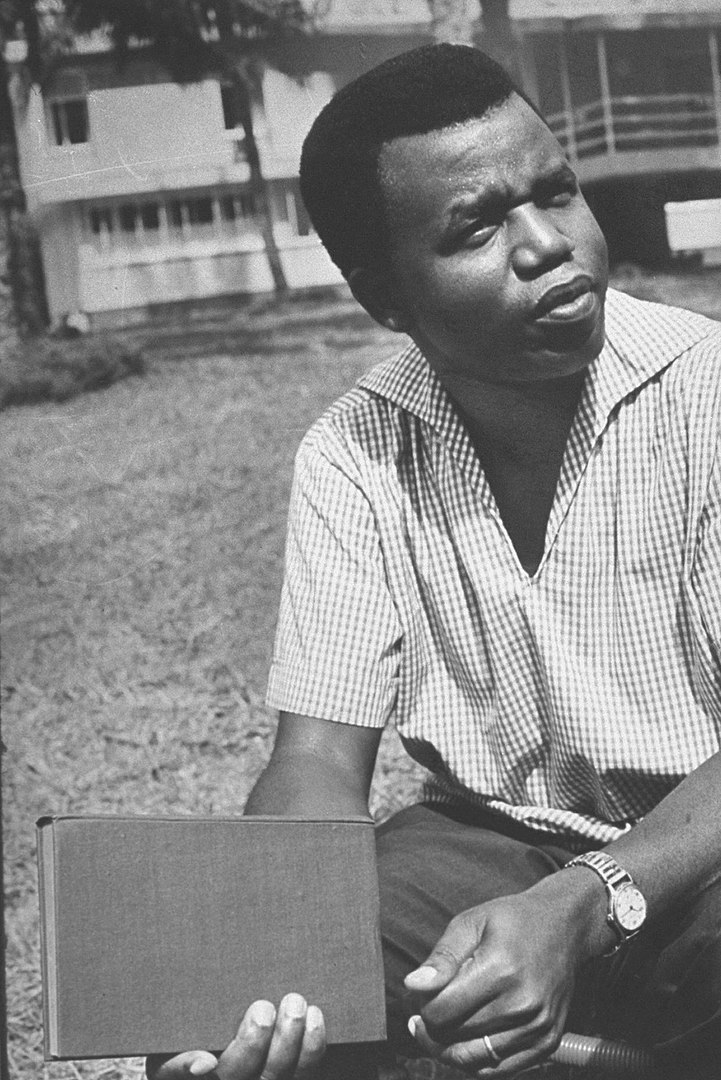
Chinua Achebe in Lagos, Nigeria, 1966. Photo by Carlo Bavagnoli, Public domain, via Wikimedia Commons
Achebe began his three years of schooling as a 14-year-old in 1944. What did this time at Umuahia give the young Achebe? In the school library, he had access to novels and stories in which brave white heroes fought against or protected savage coloured people. In an autobiographical essay collection, he explains that he mostly saw them as exciting stories, but they were also ‘perfect preparation for the day when we were old enough to read between the lines and ask questions’. During his youth, Achebe began to look critically at the portrayal of Africa in western literature and philosophy, which presented the ingrained image of a continent without history and intellectual life, submerged in savagery that could only be redeemed by the white man. He began to see a close connection between this literary tradition and imperialism: ‘If you are going to enslave or to colonize somebody, you are not going to write a glowing report about him either before or after. Rather you will uncover or invent terrible stories about him so that your act of brigandage will become easy for you to live with.’
He then began to see the need to create another literature that acknowledged African agency, which would become his main ambition as a writer. Umuahia stimulated the idea that he could write for himself. Public school’s rigid thoroughness allowed him to master the English language and he began to combine its forms of expression with an Igbo storytelling tradition, the informal part of his linguistic development. Achebe often wrote that he experienced the change between school life and that of the village as being positive and rejected the idea that this oscillation was in any way contradictory or schizophrenic. Irrespective of whether this was the case or not, Achebe’s books occupy the third space that began to crystallize in his time at public school. They are works that challenge colonial discourse, replacing it with something else.
Ngũgĩ’s Alliance
Ngũgĩ’s confrontation with the British education system was more radical than Achebe’s. In Decolonizing the mind, written in 1986, he is merciless in his criticism of the English literature and western philosophy curriculum that he grew up with. He suggests that although the physical colonization of Africa was done with swords and bullets, even more destructive was the colonist’s attack with chalk in the classroom. With this, imperialism detonated a ‘cultural bomb’ that annihilated Africans’ belief in their own languages and histories. It had the effect, says Ngúgí, that the colonized began to view their culture and history as ‘wastelands of non-achievement’ that they should distance themselves from. European culture and academic traditions were held up as a paragon but one that debased the cultures of the colonized and ranked them according to how close they came to the European model. The colonized might strive to emulate this model but would never be able to achieve it completely because of their alleged cultural and racial inferiority.

Renowned Kenyan writer Ngũgĩ wa Thiong’o Photo by Shawn Miller/Library of Congress. Library of Congress Life, CC0, via Wikimedia Commons
Ngũgĩ argues that the struggle against imperialism and its colonial and neo-colonial phases could only take its lead from the language and resistance culture of Africa and not from European language, culture and ideas. It was thus necessary to challenge writers such as Karen Blixen and philosophers such as Hegel, who Ngũgĩ described as a nineteenth century Hitler because of his defense of the transatlantic slave trade. In 1977 Ngũgĩ gave up his English name and began writing in his native language, Gikuyu. This was no ironic appropriation but a fundamental revolt against western high culture and the colonial education tradition that promoted it.
However, this perception becomes slightly more complex when taking Ngũgĩ’s three-volume autobiography, published between 2010 and 2016, into account: volume two is entirely dedicated to his time at public school. One evening in 1957, the school debating society was arguing for or against the statement ‘western education has done more harm than good in Africa’. Ngũgĩ describes how he became involved in the heated discussion: ‘I told a story. A person comes to your house. He takes your land. In exchange, he gives you a pencil. Is this a fair exchange? I would rather he kept his pencil and I kept my land.’ At the end of the debate, the majority were in agreement with Ngũgĩ. The lesson he learned from this was the awareness of the power of a well-chosen analogy to illuminate and criticize colonialism’s complex relationships.
Ngũgĩ’s relationship with the school’s influential principal, Carey Francis, a dictatorial, pious Cambridge don who had dedicated his life to the education of young East Africans, is also illuminating. At one point, Ngũgĩ found himself in a position where he had to reveal that his brother was fighting with the rebels in the war that was raging between the Mau Mau (or Land and Freedom) movement and the colonial administration. Ngũgĩ expected to be expelled but wasn’t and later discovered that Francis used the school as a refuge for youths caught on both sides of the conflict. This completely changed Ngũgĩ’s perception of the war, which ‘put more cracks in my perception of a white monolith pitted against a black monolith already challenged by the reality of many Africans, including some relatives, who fought on the colonial side .’
Productions of Shakespearean plays, which the school – convinced of the universal resonance of the works of the great dramatist – made into an annual event, were also directly influential on Ngũgĩ’s intellectual development. A production of As You Like It gave Ngũgĩ ‘a momentary vision of the world as a vast village of the type with numerous paths, their entries and exits beyond the horizon … I could not help comparing the pairs of exiles in Arden to my brother, Good Wallace, wandering in the forests of Nyandarwa and Mount Kenya. ’ His many descriptions of theatrical productions are worth mentioning as he played a critical part in revitalizing the East African theatre tradition. Given their obvious political message, the plays, which were written in Gikuyu, were seen as a threat to the government and led to Ngũgĩ’s arrest in 1977.
Conclusion
It is occasionally suggested that a balanced view of western imperialism presupposes that the positive effects the colonial administration had on establishing infrastructure, health services and higher education should be taken into account. ‘The empires weren’t all bad’, argues the historian Niall Ferguson in his Ted Talk on the subject. This, however, isn’t Achebe and Ngũgĩ’s view. For them, colonialism was in its very nature a singularly repressive construction. When Achebe and Ngũgĩ describe how the colonial education system provided them with the tools to challenge its structure, they always emphasize that this happened despite the logic of the system. It was unintentional that, in the encounter between pupils and teachers, a third space was created, with the opportunity to challenge the discourses and structures colonialism. Achebe effectively sums up the dynamic:
‘Because colonialism was essentially a denial of human worth and dignity, its education program would not be a model of perfection. And yet the great thing about being human is our ability to face adversity down by refusing to be defined by it, refusing to be more than its agent or its victim.’
The strength of the two writers’ autobiographies lies not least with the way in which they deal with this important issue.
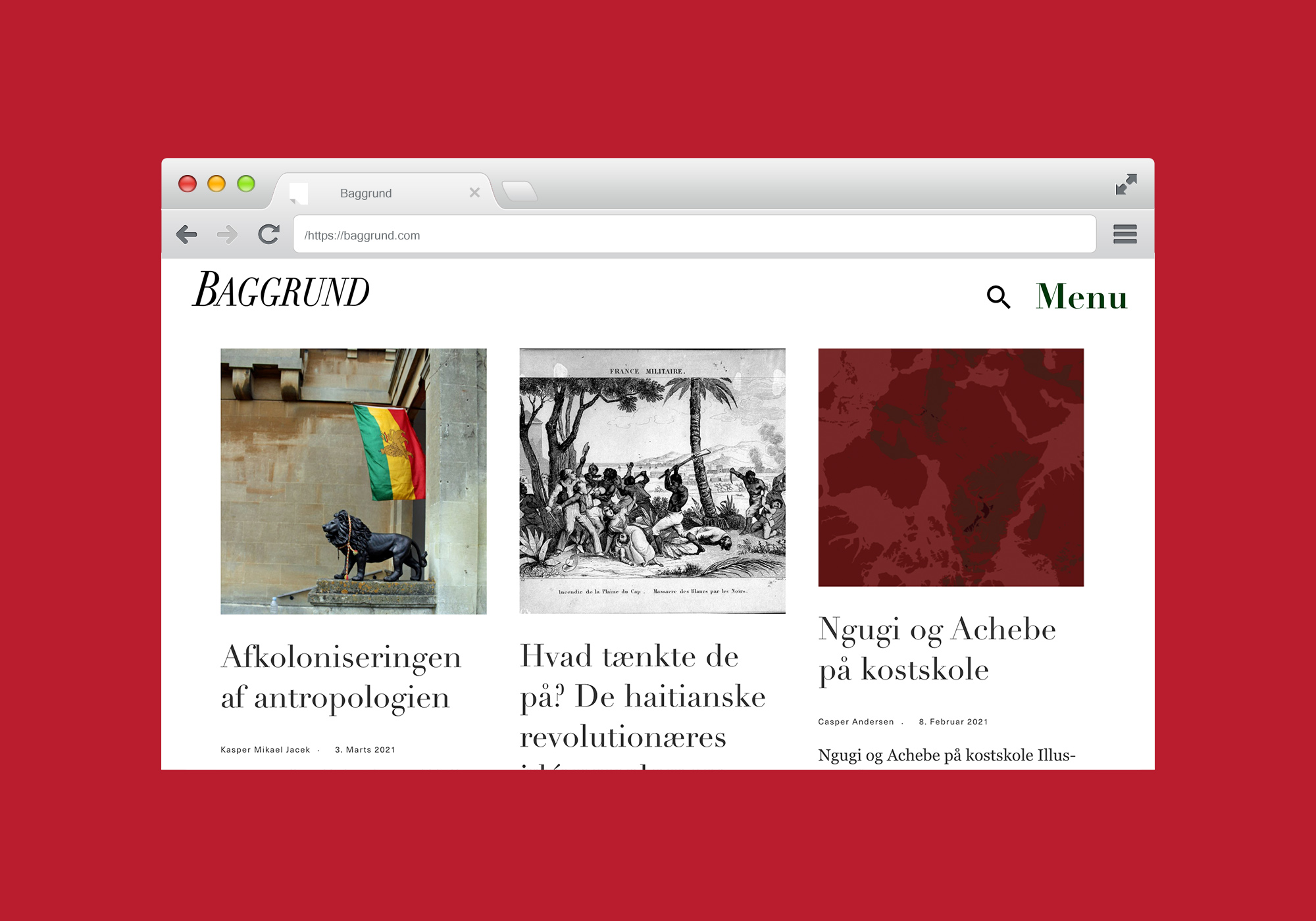
This article, part of the Eurozine Review 9/2021, was originally published in Danish by Baggrund online on 8 February 2021 and as a chapter from the publisher’s book Global idéhistorie (Global History of Ideas).
